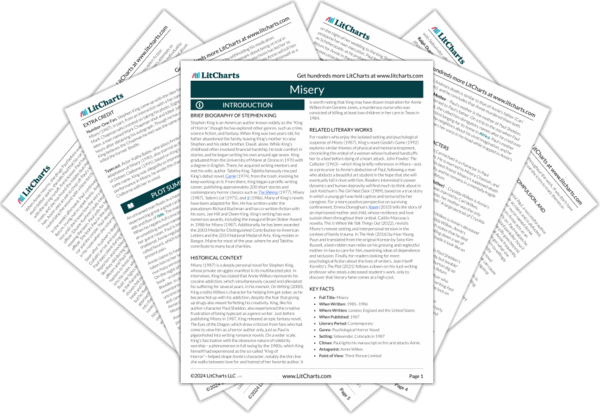Paul has grown obsessed with his writing in the same way he is addicted to the Novril. That he moves himself to the chair, even though it means risking Annie discovering his regained strength, demonstrates how alluring the creative act has become. In this case, giving into compulsion does come with consequences: Annie refuses to fill in the
ns in Paul’s manuscript, and he hurts himself. Annie’s comparison of everyone in the world to the trapped rat draws attention to the way all humans, in some way, lack control over their fates, which frequently leads to suffering and injustice.
